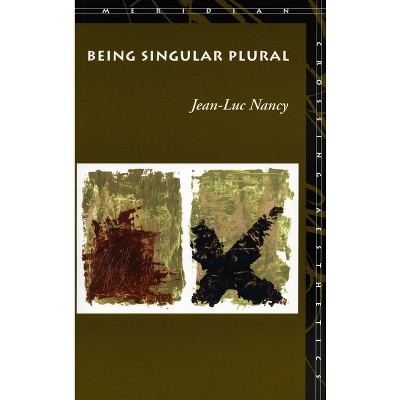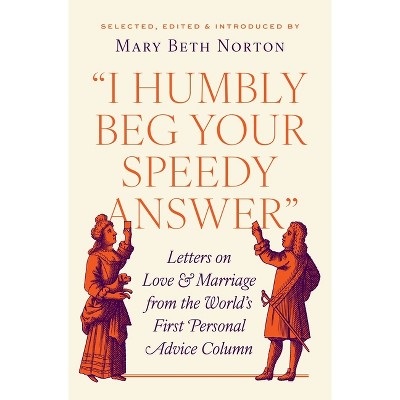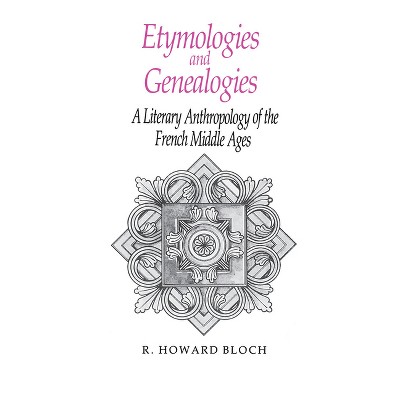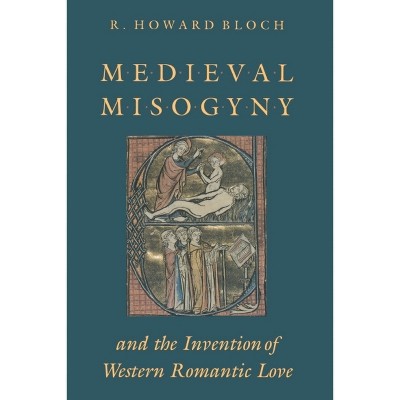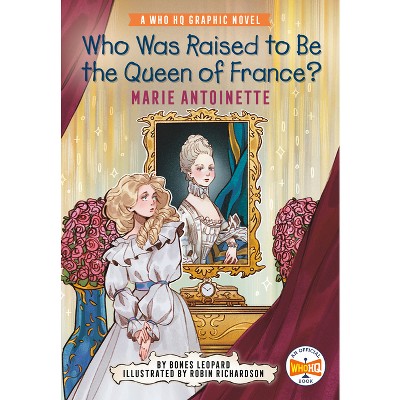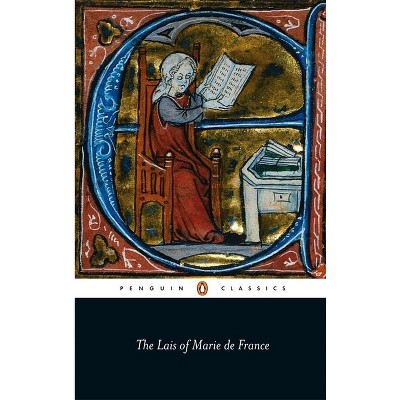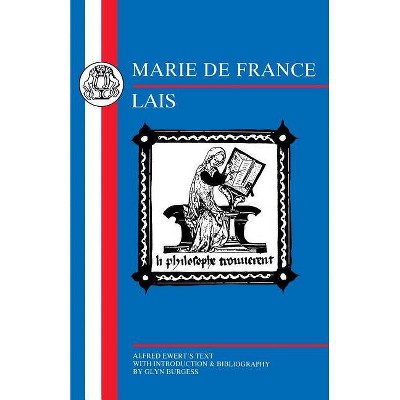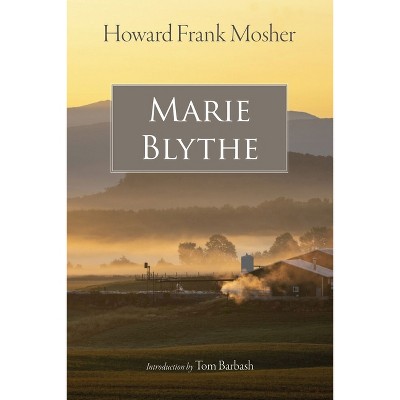Sponsored

The Anonymous Marie de France - by R Howard Bloch (Paperback)
$44.00
In Stock
Eligible for registries and wish lists
Sponsored
About this item
Highlights
- This book by one of our most admired and influential medievalists offers a fundamental reconception of the person generally assumed to be the first woman writer in French, the author known as Marie de France.
- About the Author: R. Howard Bloch is the Sterling Professor of French at Yale University and the author of God's Plagiarist: Being an Account of the Fabulous Industry and Irregular Commerce of the Abbé Migne, also published by the University of Chicago Press.
- 384 Pages
- Literary Criticism, Medieval
Description
Book Synopsis
This book by one of our most admired and influential medievalists offers a fundamental reconception of the person generally assumed to be the first woman writer in French, the author known as Marie de France. The Anonymous Marie de France is the first work to consider all of the writing ascribed to Marie, including her famous Lais, her 103 animal fables, and the earliest vernacular Saint Patrick's Purgatory. Evidence about Marie de France's life is so meager that we know next to nothing about her-not where she was born and to what rank, who her parents were, whether she was married or single, where she lived and might have traveled, whether she dwelled in cloister or at court, nor whether in England or France. In the face of this great writer's near anonymity, scholars have assumed her to be a simple, naive, and modest Christian figure. Bloch's claim, in contrast, is that Marie is among the most self-conscious, sophisticated, complicated, and disturbing figures of her time-the Joyce of the twelfth century. At a moment of great historical turning, the so-called Renaissance of the twelfth century, Marie was both a disrupter of prevailing cultural values and a founder of new ones. Her works, Bloch argues, reveal an author obsessed by writing, by memory, and by translation, and acutely aware not only of her role in the preservation of cultural memory, but of the transforming psychological, social, and political effects of writing within an oral tradition. Marie's intervention lies in her obsession with the performative capacities of literature and in her acute awareness of the role of the subject in interpreting his or her own world. According to Bloch, Marie develops a theology of language in the Lais, which emphasize the impossibility of living in the flesh along with a social vision of feudalism in decline. She elaborates an ethics of language in the Fables, which, within the context of the court of Henry II, frame and form the urban values and legal institutions of the Anglo-Norman world. And in her Espurgatoire, she produces a startling examination of the afterlife which Bloch links to the English conquest and occupation of medieval Ireland. With a penetrating glimpse into works such as these, The Anonymous Marie de France recovers the central achievements of one of the most pivotal figures in French literature. It is a study that will be of enormous value to medievalists, literary scholars, historians of France, and anyone interested in the advent of female authorship.From the Back Cover
This book by one of our most admired and influential medievalists offers a fundamental reconception of the person generally assumed to be the first woman writer in French, the author known as Marie de France. The Anonymous Marie de France is the first work to consider all of the writing ascribed to Marie, including her famous Lais, her 103 animal fables, and the earliest vernacular Saint Patrick's Purgatory. Evidence about Marie de France's life is so meager that we know next to nothing about her-not where she was born and to what rank, who her parents were, whether she was married or single, where she lived and might have traveled, whether she dwelled in cloister or at court, nor whether in England or France. In the face of this great writer's near anonymity, scholars have assumed her to be a simple, naive, and modest Christian figure. Bloch's claim, in contrast, is that Marie is among the most self-conscious, sophisticated, complicated, and disturbing figures of her time-the Joyce of the twelfth century. At a moment of great historical turning, the so-called Renaissance of the twelfth century, Marie was both a disrupter of prevailing cultural values and a founder of new ones. Her works, Bloch argues, reveal an author obsessed by writing, by memory, and by translation, and acutely aware not only of her role in the preservation of cultural memory, but of the transforming psychological, social, and political effects of writing within an oral tradition. Marie's intervention lies in her obsession with the performative capacities of literature and in her acute awareness of the role of the subject in interpreting his or her own world. According to Bloch, Marie develops a theology of language in the Lais, which emphasize the impossibility of living in the flesh along with a social vision of feudalism in decline. She elaborates an ethics of language in the Fables, which, within the context of the court of Henry II, frame and form the urban values and legal institutions of the Anglo-Norman world. And in her Espurgatoire, she produces a startling examination of the afterlife which Bloch links to the English conquest and occupation of medieval Ireland. With a penetrating glimpse into works such as these, The Anonymous Marie de France recovers the central achievements of one of the most pivotal figures in French literature. It is a study that will be of enormous value to medievalists, literary scholars, historians of France, and anyone interested in the advent of female authorship.About the Author
R. Howard Bloch is the Sterling Professor of French at Yale University and the author of God's Plagiarist: Being an Account of the Fabulous Industry and Irregular Commerce of the Abbé Migne, also published by the University of Chicago Press.Dimensions (Overall): 9.02 Inches (H) x 6.1 Inches (W) x .85 Inches (D)
Weight: 1.13 Pounds
Suggested Age: 22 Years and Up
Number of Pages: 384
Genre: Literary Criticism
Sub-Genre: Medieval
Publisher: University of Chicago Press
Format: Paperback
Author: R Howard Bloch
Language: English
Street Date: May 15, 2006
TCIN: 1006091091
UPC: 9780226059846
Item Number (DPCI): 247-20-5433
Origin: Made in the USA or Imported
If the item details aren’t accurate or complete, we want to know about it.
Shipping details
Estimated ship dimensions: 0.85 inches length x 6.1 inches width x 9.02 inches height
Estimated ship weight: 1.13 pounds
We regret that this item cannot be shipped to PO Boxes.
This item cannot be shipped to the following locations: American Samoa (see also separate entry under AS), Guam (see also separate entry under GU), Northern Mariana Islands, Puerto Rico (see also separate entry under PR), United States Minor Outlying Islands, Virgin Islands, U.S., APO/FPO
Return details
This item can be returned to any Target store or Target.com.
This item must be returned within 90 days of the date it was purchased in store, shipped, delivered by a Shipt shopper, or made ready for pickup.
See the return policy for complete information.
Frequently bought together

$11.37 - $16.50
MSRP $18.99 - $30.00
Buy 1, get 1 50% off select books
4.4 out of 5 stars with 23 ratings
Trending Book Deals

Bestseller
$20.36
was $22.89 New lower price
Buy 1, get 1 50% off select books
4.4 out of 5 stars with 64 ratings



Highly rated
$19.66
was $23.09 New lower price
Buy 1, get 1 50% off select books
4.6 out of 5 stars with 53 ratings

Highly rated
$19.66
was $23.09 New lower price
Buy 1, get 1 50% off select books
4.5 out of 5 stars with 50 ratings

$9.85 - $23.88
MSRP $15.99 - $32.99
Buy 1, get 1 50% off select books
4.8 out of 5 stars with 154 ratings


